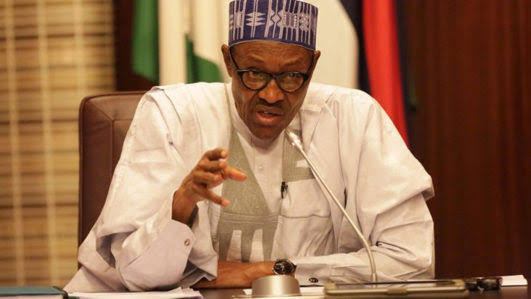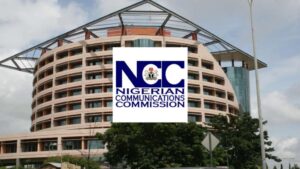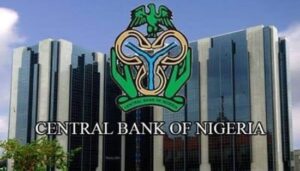
An Irish company yesterday vowed its readiness to begin the process of seizing $9.6 billion (N2.946 trillion) of Nigeria’s assets. This followed Friday’s decision of the English Commercial Court to permit the enforcement of a 2016 arbitration award against Nigeria.
Justice Butcher had on Friday insisted on Process & Industrial Developments Limited’s (P&ID) right to enforce the pre-award interest, a decision Nigeria’s apex financial institution, the Central Bank of Nigeria (CBN), said it would appeal.
Implementing the British Court’s decision will cost Nigeria more than 20 per cent of its $43.9 billion in foreign reserves. The Irish firm in an email to The Guardian on Monday night said it was pleased that the court had rejected Nigeria’s objections both to the arbitration process and the amount of the award and was set to begin the enforcement in the United Kingdom, which would entail an execution of its right to seize $9.6 billion in Nigerian assets.
CBN governor, Godwin Emefiele, told reporters in Abuja yesterday that the apex bank was ready to halt the process. According to him, there were irregularities in the process of establishing the contract and that the Economic and Financial Crimes Commission (EFCC) was investigating the matter.
Nigerian lawyers and experts on foreign affairs, including Prof. Bolaji Akinyemi, yesterday said they would comment on the matter only after sighting copies of the contract and the British court judgment. But a professor of International Law and Jurisprudence, Akin Oyebode, in a telephone conversation with The Guardian, noted that Nigeria could actually tender an ex parte application before the British court to restrain the P&ID from enforcing the arbitration award at the moment.
Oyebode said that although he had not been properly briefed as to what really transpired, there would be “ripple effects” if a sovereign nation defaulted in such a contract, especially as promises that are “freely entered into are binding. Again, I don’t know what Nigeria really agreed to because this happened under (former President Goodluck) Jonathan…”He said: “English courts have not been very sympathetic to those who go back on their promises” without establishing that there was a fundamental change of circumstances.
“If there is a drastic change that will make the enforcement onerous, then the court might entertain the notion of their going back on the engagement. “Once you have an arbitrary award, it is binding on you. It means the original agreement had an arbitration clause, which enabled the other party to proceed against us. If there was no arbitration clause, then we could talk of a court judgment, which we can subject to appeal…”
According to Oyebode, in the current circumstance, Nigeria could try to get an ex parte application before the British court to restrain the Irish party until the matter is finally disposed of.He nevertheless described the issue as “very complex,” adding: “An Irish company proceeding against Nigeria-owned state property in the UK shows the number of interesting legal problems which we can’t exhaust with a simple telephone interview.”
P&ID’s counsel on the matter, Andrew Stafford, said: “The court has ruled decisively in P&ID’s favour and has comprehensively rejected Nigeria’s efforts to avoid the payment of this award of over $9.6 billion. P&ID is committed to vigorously enforcing its rights, and we intend to begin the process of seizing Nigerian assets in order to satisfy this award as soon as possible.”
Stafford represents corporations, hedge funds and high-net-worth individuals in complex high-value litigations spanning multiple jurisdictions and involving significant cross-border elements.
The court rejected the Nigerian government’s arguments and agreed with P&ID on every point, the most salient being: London was the seat of the arbitration; the award does not violate UK public policy; and that Nigeria cannot now challenge the tribunal’s awarding of pre-award interest.
The finding regarding the seat of arbitration is important because the determination means only the English court has “supervisory jurisdiction over challenges to awards in the arbitration.” This appears to threaten the effectiveness of any applications to a Nigerian court.
Justice Butcher also stated that many of the arguments by the Federal Republic of Nigeria (FRN) were “not analogous to the facts (Paragraph 66),” that he “(did) not accept the submission (Paragraph 66),” and that he “was wholly unpersuaded (Paragraph 79)” by the assertions.
Key excerpts from the court’s decision include – (Seat of the Arbitration), Paragraph 67: “I conclude that the terms of Procedural Order No. 12, coupled with the fact that neither it nor the Final Award have been set aside by this or any court, determine the location of the seat of the arbitration as being London, England, and that that is not a matter which the FRN can now ask this court to revisit.”
Paragraph 87: “I have also reached the same conclusion as did the tribunal in relation to there being an agreement by conduct that the seat of the arbitration as provided for by clause 20 of the GSPA should be regarded as London.”
– (Award Amount and UK Public Policy), Paragraph 96: “The Final Award, consistently with my earlier conclusions, was one given in an arbitration whose seat was England. It could, accordingly, have been the subject of an application under s. 68 Arbitration Act 1996 in relation to serious irregularity. No such application was made and the Final Award has, plainly, not been set aside or remitted.”
Paragraph 97: “Are there any grounds of public policy on which such an award, which is intended to and is expressed as awarding compensatory damages, and which could have been but has not been subject to remedies under ss. 68 Arbitration Act 1996, should not be enforced? In my judgment there are not.”
Paragraph 102: “Furthermore, the public policy in favour of enforcing arbitral awards is a strong one, and, if a balancing exercise is required at all, outweighs any public policy in refusing enforcement of an award of excessive compensation. The labelling of such excessive compensation as “punitive” or “penal”, as the FRN seeks to do in this case does not alter this conclusion.”
– (Pre-Award Interest), Paragraph 108: “Given that there was no such application in relation to the award of pre-award interest (or at all), I do not consider that there can now be a separate objection to enforcement on the basis of a lack of jurisdiction.”
On the background to the controversy, P&ID claimed that its founders, Brendan Cahill and Michael Quinn, had conceived the new project to deliver “much-needed power generation to millions of Nigerians, and create profitable by-products for sale on the international market. Under an agreement with Nigeria, P&ID would build a state-of-the-art gas processing plant to refine natural gas (‘wet gas’) into ‘lean gas’.”
P&ID “would receive no payment for this work: instead, they would own the by-products created by the refining – such as propane, ethane and butane, known as Natural Gas Liquids (NGLs) – and would have the right to sell them on the international markets. This market would be worth billions of dollars over the 20-year lifespan of the contract.”
Nigeria reportedly failed to supply the ‘wet gas’ (which was required under the terms of the contract) and so the project stalled. P&ID claimed it made multiple compromises in an attempt to find a workable solution but did “not find a willing partner on the other side of the table.”
In 2012, the P&ID went to arbitration to try to resolve the dispute, and in 2016, the panel of independent arbitrators ruled that Nigeria was liable to the company, a decision that has led to the current situation. The panel comprised experienced arbitrators like Lord Hoffmann (appointed independently by neither party).
Hoffmann was a former Law Lord in the U.K. House of Lords and is a current member of the Hong Kong Court of Final Appeal. Others were: Sir Anthony Evans (appointed by P&ID), who formerly sat in the English Court of Appeal and is now the Chief Justice of the Dubai International Financial Centre Courts; Chief Bayo Ojo (appointed by Nigeria) had formerly been Attorney General of Nigeria. These jurists ruled unanimously that Nigeria was liable to P&ID.
You may be interested

Arsenal Equal Chelsea’s London Derby Feat After 5-1 Win Vs Palace
Webby - December 21, 2024Arsenal equaled Chelsea’s London derby achievement following their 5-1 win against Crystal Palace in Saturday’s Premier League game at Selhurst…

Haaland Backs Guardiola To Turn Man City’s Poor Form Around
Webby - December 21, 2024Erling Haaland had said he and his Manchester City teammates are still backing manager Pep Guardiola to turn the team’s…

PSG To Reignite Interest In Osimhen
Webby - December 21, 2024Paris Saint-Germain have contacted Napoli to discuss signing Victor Osimhen in January, according to reports in France.It is reported that…





















![American Pastor, David Wilson Seen Eating The Box Of Woman Who Isn’t His Wife [Video]](https://onlinenigeria.com/wp-content/uploads/2019/10/american-pastor-david-wilson-seen-eating-the-box-of-woman-who-isnt-his-wife-video-150x150.jpg)









